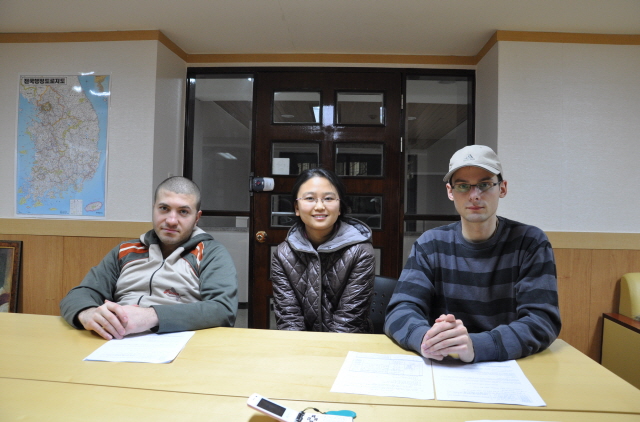On Feb. 11, the Bilingual Campus plan which declares ‘two equivalent official languages on campus’ was first reported on by the external press. The plan is composed of nine main divisions of reformations, and these programs are to start in the upcoming Spring Semester. After undergoing three years of a transitional period, the bilingual campus is planned to be fully completed.
The main theme of the Bilingual Campus plan is to abolish any disharmony felt by foreigners on campus. All announcements will be posted in English as well as Korean, and all lectures will be delivered in English. Academic dissertations are also dealt with in English. The innovative point is the usage of English in administration, production of English manuals and supply of interactive services for foreigners.
Responses of Korean students have been very diverse. Especially, English-delivered lectures, the most influential feature for students, is the main point of argument. Many students sympathize with the need for English-delivered lectures, but they have serious doubts about their efficiency. The rest are negative about the need of English-delivered lectures. A number of students were in favor of not using English, emphasizing the identity of Koreans and Korea. Meanwhile, most students agree with the supplying of English notices and administration. However, they do not understand why the policy regards English as equivalent to Korean. The overall atmosphere is to agree with the need of English infrastructure for globalization, but many students are opposed to making English official. In addition, many students have complained of the exclusion of students during the progress of the proceedings.
If so, how about other members? To investigate the opinions of the rest, The Postech Times held an interview with foreign students.

Interviewees, in general, responded positively to POSTECH’s English-friendly policy. Wenying from the Institute of Technology in China commented, “I am very happy that POVIS and all the POSTECH bulletins will be in English.” However these students all stated that their universities do not use English as the means of education. Stefan, who is from the Technical University of Braunschweig in Germany, said, “The infrastructure, including the directions around the campus, are in two languages. So maybe the one thing that is really important is the bilingual aspect, which applies to everyone.” However he admitted that learning in English is in some way necessary to read high-quality papers and publications. Mo, from the University of Stuttgart in Germany, added that English lectures are introduced only to the graduates.
They furthermore pointed out problems related to the globalization plan and gave realistic suggestions. Mo and Stefan emphasized the need for marketing of the school. “I came here for an internship and did not know about this university before,” said Mo. “If POSTECH takes special attention to marketing, it can be a top university.” Stefan commented that a focused marketing towards top universities by direct contact from POSTECH for active communication and exchange is needed. Wenying warned, “POSTECH also should not neglect to maintain good relationships with other universities by giving a positive impression to the returning international students.”
The meeting ended signifying the importance of food as well as language for POSTECH’s goal, a global campus, and the integration of foreigners to the campus.
The Bilingual Campus plan is not an independent policy, but part of an overall globalization plan. The three-year globalization plan is composed of three divisions and nine detailed plans. The Bilingual Campus plan, expected to solve communication problem of foreigners, is relevant for the global infrastructure construction. The first enforcement of a bilingual campus in the overall plan will be an indicator of successful progress for globalization.
Reporter Lee Sang-min
Reporter Kim Eun-ji


